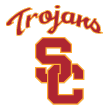
WELCOME TO MOSCOW, IDAHO; THE HOME OF THE MOST DYSFUNCTIONAL PROGRAM IN DIVISION 1-A.
As the 2003 football season approached, fans were excited as ever. Stars such as Roy Williams and Chris Gamble adorned magazine covers, top programs like Oklahoma, Miami, and Ohio State grabbed headlines seemingly everywhere, and a wide field of contenders and playmakers were beginning to train in hopes of being immortalized in the future retellings of their heroics on the gridiron. This year promised to be great, and fans in every corner of the nation, from Boston to Honolulu, were simply infectious with optimism.
Except, perhaps, for a little corner of Idaho, where there was not joy and hope, but a looming sense of dread. Tom Cable had just been fired after mustering 3 wins in 2 seasons, and the Sun Belt was openly regretful about its decision to add such a small-market team who could barely win a game, much less compete with a Boise State team who had gone 12-1 the previous year.
The team had a few bright spots, but a large crop of players who made up the bulk of the talent on the team were leaving at seasons' end. The young generation was marked with technical ineptitude, a lack of athleticism, and few prospects who didn't walk on. Cable was not returning, and the team was scrambling to find a half-decent coach before the first round of practices.
The program had already had a history of being in awkward transition between conferences: It had been essentially a 1-A program in the 1-AA Big Sky, denied the privileges of an FBS team but not allowed to compete in the FCS playoffs. It had just left the Big West when it was disbanded and was considering leaving for the WAC before the troubles with competing began.
The final nail in the coffin seemed to be set when news of a scandal came out at the university: players had been eating maliciously grown potatoes, cultivated in the science lab, which contained performance-enhancing drugs. As most of the players were Idaho natives, they took this new addition to their meals as a slight variant to their normal, spud-based diet.
And now, the Vandals were greeted by an ultimatum from the NCAA: Clean their act up over the next three seasons, or face some of the harshest penalties ever faced by an NCAA team. Removal from division 1-A in all sports, abolishment of the football program, fines, forced relocation from the poorly built Kibbie Dome, and worst of all, forced usage of NON-LOCAL POTATOES.
(This is the only defining feature of Idaho I am aware of, and yes, I am too lazy to do my research)
Faced with a do-or-die situation like no one else ever was, the University turned to their last resort, an old alumni, a relic of an age of Vandal football long gone, living in Boise, who had thought he would never touch a football again.
And, by some miracle, NFL legend and former Vandal Jerry Kramer accepted the challenge.
With nothing to lose, the Vandal team, coaches, and athletic directors came up with a desperation plan: filling out the few open slots on their schedule with some of the best teams in the FBS. The schedule seemed impossible. The Vandals were weakened. And they were resolved to play every down like it was the last play of the game.
Welcome to the most desperate, poorly managed, unheralded team in the NCAA. Which also just happens to be the one team with nothing to lose. After all, if the ancient Vandals sacked Rome, can these ones not sack Ohio State?
I guess we'll find out.
Welcome to Moscow.
















Comment